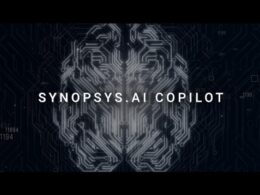Google’s exploration in the field of generative AI has had its ups and downs, but that hasn’t deterred the search giant from releasing new products and features. One such product is the experimental AI-driven online note-taking app called NotebookLM. Initially available to selected users through a waitlist, Google has now made it generally available to all adult users in the U.S. who opt in, and best of all, it’s free.
NotebookLM and Gemini AI Model
What sets NotebookLM apart is its integration with Google’s new Gemini AI model. The Gemini AI model enhances the app’s functionality, with the most advanced version, “Gemini Pro,” being released this week. It offers a larger context and higher parameter count, providing users with more accurate and comprehensive answers. Additionally, Google has plans to release Gemini Ultra next year, a model with even more parameters, and Gemini Nano, designed for smartphones running on Google’s Android operating system.
“When you upload documents to NotebookLM, it becomes an instant expert in the information you need for your projects, capable of answering questions based on the supplied sources,” says Google Labs Editorial Director Steven Johnson and Product Manager Raiza Martin.
NotebookLM was developed in partnership with author Steven Johnson. Its main purpose is to allow users to upload multiple documents from their computers or Google Drive cloud storage into a single digital note space, where they can engage in conversations with the AI. Users can ask questions using the chatbot-style interface, and the AI will provide answers based on the uploaded documents.
Thanks to the Gemini update, NotebookLM has undergone significant improvements. It can now analyze and reference up to 20 documents simultaneously, with a capacity of 200,000 words per document. This opens up a range of possibilities for users. For example, students can upload readings and have dialogues with NotebookLM to practice sample test questions. Researchers can upload prior work or data and interact with the AI to gain insights and ask questions about their research.
Google’s goal with NotebookLM is to empower users from various industries and sectors to have their own personalized AI assistant. This assistant can retrieve highly specific knowledge tailored to individual needs and workloads, eliminating the need for companies to invest large sums of money in building such an assistant themselves.
Limitations of NotebookLM
While NotebookLM offers promising features, there is one major limitation that may hinder its usefulness. The app is unable to analyze or browse web links, even those provided by the user in their notes. This omission is surprising coming from a company known for its web crawling and indexing capabilities. Users must manually save and upload PDFs of webpages or copy and paste text into a Google Doc in order for NotebookLM to analyze and reference the information.
During our tests, we also noticed that NotebookLM did not always reference the full text of provided PDFs, resulting in the exclusion of important information. However, after multiple attempts, we were able to obtain accurate responses. While the user interface may have minor flaws, such as mismatching fonts, it did not significantly impact our overall experience with the app. It’s worth noting that Google provides a disclaimer at the bottom of the NotebookLM screen, alerting users that occasional inaccuracies may occur and encouraging them to verify facts independently.
U.S. users with a free Google account can try out NotebookLM for themselves here.










